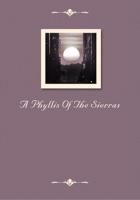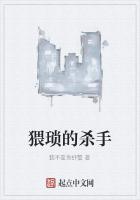To recur to the case of rights acquired by prescription, every universal successor could add the time of his predecessor's adverse use to his own in order to make out the right.There was no addition, legally speaking, but one continuous possession.
The express fiction of inheritance perhaps stopped here.But when a similar joinder of times was allowed between a legatee or devisee (legatarius) and his testator, the same explanation was offered.It was said, that, when a specific thing was left to a person by will, so far as concerned having the benefit of the time during which the testator had been in possession for the purpose of acquiring a title, the legatee was in a certain sense quasi an heir. Yet a legatarius was not a universal successor, and for most purposes stood in marked contrast with such successors. Thus the strict law of inheritance had made the notion familiar that one man might have the advantage of a position filled by another, although it was not filled, or was only partially filled, by himself; and the second fiction, by which the privileges of a legal heir in this respect as well as others had been extended to other persons, broke down the walls which might otherwise have confined those privileges to a single case.A new conception was introduced into the law, and there was nothing to hinder its further application.As has been shown, it was applied in terms to a sale of the universitas for business purposes, and to at least one case where the succession was confined to a single specific thing.Why, then, might not every gift or sale be regarded as a succession, so far as to insure the same advantages?
The joinder of times to make out a title was soon allowed between buyer and seller, and I have no doubt, from the language always used by the Roman lawyers, that it was arrived at in the way I have suggested.A passage from Scaevola (B.C.30) will furnish sufficient proof.Joinder of possessions, he says, that is, the right to add the time of one's predecessor's holding to one's own, clearly belongs to those who succeed to the place of others, whether by contract or by will: for heirs and those who are treated as holding the place of successors are allowed to add their testator's possession to their own.Accordingly, if you sell me a slave I shall have the benefit of your holding. The joinder of times is given to those who succeed to the place of another.Ulpian cites a like phrase from a jurisconsult of the time of the Antonines,-- "to whose place I have succeeded by inheritance, or purchase, or any other right." Succedere in locum aliorum, like sustinere personam, is an expression of the Roman lawyers for those continuations of one man's legal position by another of which the type was the succession of heir to ancestor.Suecedere alone is used in the sense of inherit, and successio in that of "inheritance." The succession par excellence was the inheritance; and it is believed that scarcely any instance will be found in the Roman sources where "succession" does not convey that analogy, and indicate the partial assumption, at least, of a persona formerly sustained by another.It clearly does so in the passage before us.
But the succession which admits a joinder of times is not hereditary succession alone.In the passage which has been cited Scaevola says that it may be by contract or purchase, as well as by inheritance or will.It may be singular, as well as universal.
The jurists often mention antithetically universal successions and those confined to a single specific thing.Ulpian says that a man succeeds to another's place, whether his succession be universal or to the single object. If further evidence were wanting for the present argument, it would be found in another expression of Ulpian's.He speaks of the benefit of joinder as derived from the persona of the grantor."He to whom a thing is granted shall have the benefit of joinder from the persona of his grantor." A benefit cannot be derived from a persona except by sustaining it.
It farther appears pretty plainly from Justinian's Institutes and the Digest, that the benefit was not extended to purchasers in all cases until a pretty late period. Savigny very nearly expressed the truth when he said, somewhat broadly, that "every accessio, for whatever purpose, presupposes nothing else than a relation of juridical succession between the previous and present possessor.For succession does not apply to possession by itself." And I may add, by way of further explanation, that every relation of juridical succession presupposes either an inheritance or a relation to which, so far as it extends, the analogies of the inheritance may be applied.
The way of thinking which led to the accessio or joinder of times is equally visible in other cases.The time during which a former owner did not use an casement was imputed to the person who had succeeded to his place. The defence that the plaintiff had sold and delivered the thing in controversy was available not only to the purchaser, but to his heirs or to a second purchaser, even before delivery to him, against the successors of the seller, whether universal or only to the thing in question. If one used a way wrongfully as against the predecessor in title, it was wrongful as against the successor, whether by inheritance, purchase, or any other right. The formal oath of a party to an action was conclusive in favor of his successors, universal or singular. Successors by purchase or gift had the
benefit of agreements made with the vendor. A multitude of general expressions show that for most purposes, whether of action or defence, the buyer stood in the shoes of the seller, to use the metaphor of our own law. And what is more important than the result, which often might have been reached by other ways, the language and analogies are drawn throughout from the succession to the inheritance.















